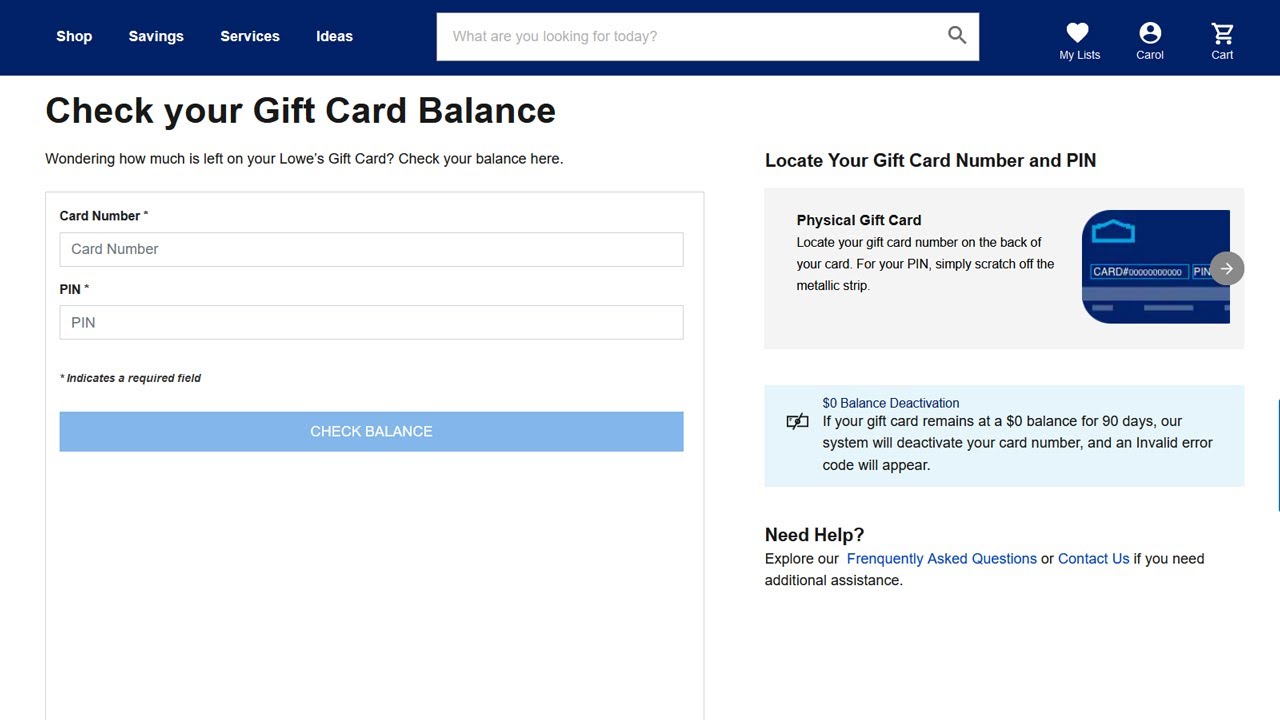

Finance
What Can I Get With A 655 Credit Score
Modified: March 4, 2024
Discover the options available for financing with a 655 credit score. Find out what you can qualify for and start planning your financial future today.
(Many of the links in this article redirect to a specific reviewed product. Your purchase of these products through affiliate links helps to generate commission for LiveWell, at no extra cost. Learn more)
Table of Contents
- Introduction
- Definition of a 655 Credit Score
- Factors That Affect a 655 Credit Score
- Availability of Personal Loans with a 655 Credit Score
- Mortgage Options for Individuals with a 655 Credit Score
- Credit Card Options for Individuals with a 655 Credit Score
- Auto Loan Options with a 655 Credit Score
- Insurance Rates for Individuals with a 655 Credit Score
- Effects of a 655 Credit Score on Renting a Home
- Employment Implications of a 655 Credit Score
- Strategies for Improving a 655 Credit Score
- Conclusion
Introduction
A credit score is a numerical representation of an individual’s creditworthiness. It is a three-digit number that lenders use to assess the risk of lending money to borrowers. A credit score can range from 300 to 850, with a higher score indicating a more favorable credit profile.
A 655 credit score falls within the Fair credit range, which is considered to be a moderately average credit score. While it may not be considered excellent, it is still a decent score that can provide access to various financial products and services.
Understanding what you can get with a 655 credit score is crucial for making informed financial decisions. This article will delve into the factors that affect a 655 credit score and explore the range of possibilities available in terms of personal loans, mortgages, credit cards, auto loans, insurance rates, renting a home, and even employment implications.
By the end of this article, you’ll have a comprehensive understanding of what you can expect with a 655 credit score and some strategies to improve it.
Definition of a 655 Credit Score
A 655 credit score is categorized as “Fair” on the credit score scale. It falls between the ranges of 580 to 669, indicating a moderate creditworthiness. While it may not be considered excellent, it is still above the average credit score of 600.
Here is a breakdown of how credit scores are generally grouped:
- Poor: 300 – 579
- Fair: 580 – 669
- Good: 670 – 739
- Very Good: 740 – 799
- Exceptional: 800 – 850
A 655 credit score suggests that the individual has had some credit issues or may have a limited credit history. Lenders may see this as a moderate level of risk when considering loan applications or determining interest rates.
To improve their credit score, individuals with a 655 credit score should focus on practicing good credit habits. This includes making all payments on time, keeping credit card balances low, and avoiding new credit applications that may result in hard inquiries on their credit report.
Overall, while a 655 credit score may not provide access to the best interest rates and loan terms, it still allows individuals to qualify for various financial products and services.
Factors That Affect a 655 Credit Score
A 655 credit score is influenced by several factors that directly impact an individual’s creditworthiness. Understanding these factors can help individuals make informed decisions to improve their credit score.
Payment History: One of the most critical factors that affect a credit score is payment history. Late payments, missed payments, or accounts in collections can have a significant negative impact on a credit score. On the other hand, making all payments on time can help improve and maintain a favorable credit score.
Credit Utilization Ratio: The credit utilization ratio is the percentage of available credit that an individual is currently using. A high credit utilization ratio can indicate dependency on credit and may negatively affect a credit score. It is advisable to keep credit utilization below 30% to maintain a healthy credit score.
Length of Credit History: The length of an individual’s credit history also plays a role in determining their credit score. A longer credit history provides more data for lenders to assess creditworthiness. Keeping older accounts open and in good standing can positively impact a credit score.
New Credit Inquiries: When individuals apply for new credit, it results in hard inquiries on their credit report. Multiple inquiries within a short period can be viewed negatively by lenders and may indicate a higher risk. It is important to be cautious when applying for new credit and only do so when necessary.
Credit Mix: A healthy mix of different types of credit accounts, such as credit cards, mortgages, and loans, can positively impact a credit score. Lenders typically like to see responsible management of different credit products.
Public Records or Collections: Public records, such as bankruptcies, tax liens, or judgments can have a significant negative impact on a credit score. It is essential to address any outstanding public records or collections to improve creditworthiness.
These factors, along with others, contribute to the calculation of a credit score. By understanding these elements, individuals can focus on improving specific areas to enhance their credit score over time.
Availability of Personal Loans with a 655 Credit Score
Having a 655 credit score may impact the availability and terms of personal loans. While a fair credit score does not necessarily disqualify individuals from obtaining a personal loan, it may result in higher interest rates or more limited options compared to those with excellent credit scores.
Many traditional lenders, such as banks and credit unions, may have stricter lending criteria for individuals with fair credit scores. They may require additional documentation, collateral, or a co-signer to mitigate the perceived risk. However, it’s important to note that each lender has its own underwriting guidelines, so it’s worth exploring different options.
For individuals with a 655 credit score, alternative lenders, such as online lenders and peer-to-peer lending platforms, may be more flexible in considering loan applications. These lenders often take a holistic approach, considering factors beyond just the credit score, such as income and employment history.
It’s essential to compare interest rates, terms, and fees from different lenders to find the most favorable personal loan option. While interest rates may be higher compared to those with excellent credit scores, borrowers should consider the overall cost of the loan and their ability to make timely repayments.
Building a good credit history and improving credit score over time can also increase the availability of personal loans with better terms and lower interest rates. Making timely payments, managing credit responsibly, and reducing credit utilization can all contribute to better creditworthiness.
Additionally, individuals may consider seeking credit counseling services or financial coaching to gain insights and strategies for improving credit scores and accessing more favorable loan options. These services can provide guidance on managing debts, creating a budget, and improving overall financial wellness.
Ultimately, while a 655 credit score may present some challenges in obtaining personal loans, there are still options available. By exploring alternative lenders, improving credit habits, and seeking professional guidance, individuals can increase their chances of accessing personal loans that meet their financial needs.
Mortgage Options for Individuals with a 655 Credit Score
When it comes to obtaining a mortgage, having a 655 credit score may influence the options available and the terms offered. While a fair credit score may not make it impossible to secure a mortgage, it may require some additional considerations and potentially result in higher interest rates.
Traditional lenders, such as banks and mortgage companies, typically have stricter lending criteria for individuals with fair credit scores. They may require a larger down payment and proof of stable income to mitigate the perceived risk associated with the lower credit score.
However, there are specialized mortgage programs and lenders that cater to borrowers with lower credit scores. These programs, such as FHA loans and VA loans (if applicable), may offer more lenient qualification requirements and lower down payment options.
It’s important to research and reach out to different lenders to explore the mortgage options available for individuals with a 655 credit score. Working with a mortgage broker can also be beneficial as they have access to a network of lenders and can help find suitable loan options.
While obtaining a mortgage with a fair credit score may be possible, it’s important to consider the associated costs. Borrowers with lower credit scores may be subject to higher interest rates, which can result in higher monthly mortgage payments over the life of the loan.
Improving credit score over time can open up more favorable mortgage options. Making consistent, on-time payments, reducing debt, and managing credit responsibly can contribute to an improved credit profile. This, in turn, may lead to better interest rates and loan terms when applying for a mortgage in the future.
Ultimately, individuals with a 655 credit score may have mortgage options available to them, but it’s crucial to shop around, compare offers, and consider the long-term affordability of the mortgage. As the credit score improves, individuals can explore refinancing options to potentially secure better terms and save on interest expenses.
Credit Card Options for Individuals with a 655 Credit Score
Having a 655 credit score can impact the availability and terms of credit card options. While it may not be considered an excellent credit score, individuals with a fair credit score still have credit card options to choose from.
Many credit card issuers offer cards specifically designed for individuals with fair credit scores. These cards often have lower credit limits and may come with higher interest rates compared to cards for those with better credit scores. It’s important to carefully review the terms and fees associated with these cards before applying.
Secured credit cards can be a viable option for individuals with a 655 credit score. These cards require a cash deposit as collateral, which typically serves as the credit limit. Using a secured credit card responsibly by making timely payments and keeping balances low can help improve creditworthiness over time.
An alternative to secured credit cards is to apply for a credit card from a local credit union. Credit unions often have more flexible lending criteria and may be more willing to work with individuals with fair credit scores.
When selecting a credit card, individuals should consider their financial needs and goals. If building credit is a priority, choosing a card that reports to all three major credit bureaus can help establish a positive credit history.
As individuals with fair credit scores manage their credit responsibly, they should aim to improve their credit score over time. This can open the door to more favorable credit card options, including those with higher credit limits, lower interest rates, and more attractive rewards programs.
It’s important to note that responsible credit card usage is crucial for maintaining and improving credit scores. This includes making timely payments, keeping balances low, and avoiding excessive credit card utilization.
Regularly reviewing credit scores and credit reports can also help individuals identify areas for improvement and catch any inaccuracies that may negatively impact their scores.
In summary, while individuals with a 655 credit score may be limited to certain credit card options, there are still choices available. By selecting the right type of credit card, using it responsibly, and working towards improving their credit score, individuals can enhance their financial prospects and access more favorable credit card options in the future.
Auto Loan Options with a 655 Credit Score
Securing an auto loan with a 655 credit score is possible, but it may come with some limitations and considerations. A fair credit score indicates moderate creditworthiness, which may result in higher interest rates and more selective loan options compared to those with higher scores.
Traditional lenders, such as banks and credit unions, may be more cautious when extending auto loans to individuals with fair credit scores. They may require a larger down payment or impose stricter terms to mitigate the perceived risk.
However, there are alternative lending options available for individuals with fair credit scores. Online lenders and specialized financing companies may be more flexible in their lending criteria and provide loans specifically tailored for individuals in this credit range.
It’s important to consider the overall cost of the auto loan and the impact of higher interest rates. Individuals with fair credit scores may need to budget for higher monthly payments due to the interest rate they are offered.
As with any loan, it’s advisable to shop around and compare offers from different lenders. This allows individuals to find the most favorable terms and interest rates that suit their financial needs.
Additionally, having a larger down payment can help offset the impact of a fair credit score. It shows the lender that the borrower is committed to the loan and reduces the lender’s perceived risk.
Building and improving credit is an essential factor for accessing better auto loan options in the future. Making consistent, on-time payments on all existing credit accounts and reducing credit utilization can contribute to a stronger credit profile over time.
In some cases, individuals may consider seeking a co-signer with a stronger credit history to improve their chances of securing a more favorable auto loan. However, they should be aware that this puts the co-signer at risk should the borrower default on the loan.
Overall, while individuals with a 655 credit score may face challenges in obtaining auto loans with the most favorable terms, there are still options available. By exploring alternative lenders, working on credit improvement, and considering a larger down payment, individuals can increase their chances of securing an auto loan that fits within their financial means.
Insurance Rates for Individuals with a 655 Credit Score
When it comes to insurance rates, a 655 credit score can have an impact on the premiums individuals are quoted for various types of insurance, such as auto insurance and homeowners insurance. Insurance companies often use credit-based insurance scores as one of the factors in determining premium rates.
Generally, individuals with higher credit scores are considered less risky and may be offered lower insurance premiums, while those with lower credit scores may face higher premiums due to perceived higher risk.
It’s important to note that not all insurance companies use credit scores as a factor in determining premiums, and regulations regarding credit-based insurance scores can vary by state. It is advisable to research and compare insurance companies to find those that consider other factors, such as driving record or claims history, more heavily.
For individuals with a 655 credit score, it’s essential to understand that the impact on insurance rates might not be as significant as it would be with a very poor credit score. However, it’s still recommended that individuals work towards improving their credit score over time to potentially lower insurance premiums in the future.
In addition to improving credit, individuals can take other steps to mitigate the impact of their credit score on insurance rates. This includes shopping around for insurance quotes from multiple providers, maintaining a clean driving record, bundling multiple policies together, and seeking out available discounts or special programs.
Insurance companies may also offer payment options, such as monthly installments or payment plans, that can help individuals manage their insurance premiums more comfortably.
Ultimately, while insurance rates can be influenced by an individual’s credit score, there are options available for individuals with a 655 credit score. By comparing quotes, making efforts to improve credit, and exploring available discounts, individuals can secure suitable insurance coverage at competitive rates.
Effects of a 655 Credit Score on Renting a Home
Having a 655 credit score can impact the process of renting a home, as landlords and property management companies often consider credit scores as part of their tenant screening process. While a fair credit score may not disqualify individuals from renting a home, it can influence several aspects of the rental process.
Approval Process: Landlords may use credit scores to assess an applicant’s financial responsibility and ability to make timely rent payments. A lower credit score may raise concerns about potential late or missed payments, making landlords more cautious during the approval process.
Increased Security Deposit: In some cases, landlords may request a higher security deposit from individuals with fair credit scores to offset the perceived risk. This allows landlords to have additional funds in case of any damages or missed rent payments during the tenancy.
Cosigners or Guarantors: Individuals with fair credit scores may be asked to provide a cosigner or guarantor with a higher credit score to guarantee rent payment. The cosigner or guarantor would be responsible for making rent payments if the tenant fails to do so.
Limited Rental Options: Some landlords or property management companies may have stricter rental criteria and prefer tenants with higher credit scores. This could limit the available rental options for individuals with fair credit scores, especially in competitive rental markets.
While a fair credit score may present challenges, there are steps individuals can take to enhance their rental prospects:
- Provide additional documentation: Submitting other documentation, such as proof of income, employment history, or rental references, can help strengthen a rental application.
- Offer a larger security deposit: Offering a larger security deposit can provide landlords with additional reassurance and demonstrate a commitment to meeting rental obligations.
- Show improvements in credit: If individuals have taken steps to improve their credit, such as making timely payments or paying off debts, they can highlight these efforts to potential landlords.
- Seek rental listings from private landlords: Private landlords may have more flexibility in their rental criteria and could be more willing to consider applicants with fair credit scores.
It’s important to remember that each landlord or property management company has different rental criteria, so while a fair credit score may present challenges, it does not necessarily mean individuals will always be denied a rental opportunity. By being proactive, providing additional documentation, and demonstrating financial responsibility, individuals can overcome the effects of a 655 credit score and increase their chances of securing a rental home.
Employment Implications of a 655 Credit Score
While a 655 credit score may not directly impact employment eligibility, it can potentially have implications in certain industries or job roles where credit checks are part of the hiring process. This is particularly true for positions that involve handling sensitive financial information or require a high level of trust and responsibility.
Financial Industry: In the financial industry, such as banking, accounting, or insurance, employers may conduct credit checks as part of the background screening process. A fair credit score could raise concerns about an individual’s ability to handle financial responsibilities, leading to consideration of other candidates with better credit history.
Government Positions: Some government positions, especially those related to national security or public trust, may require credit checks as part of the security clearance process. A lower credit score could be regarded as a potential risk factor, as it may suggest financial vulnerability or susceptibility to bribery.
Senior Management or Executive Roles: Companies may conduct credit checks for senior management or executive-level positions to assess an individual’s financial management skills and judgment. Credit scores could be seen as a measure of financial responsibility and integrity in these roles.
It’s important to note that not all employers conduct credit checks, and laws regarding employment credit checks vary by jurisdiction. Additionally, some states have enacted legislation to limit the use of credit checks as a hiring criterion.
Employers who do conduct credit checks must adhere to the Fair Credit Reporting Act (FCRA) guidelines, which require them to obtain written consent from job applicants and provide them with a copy of the credit report if adverse action is taken based on the information in the report.
While a fair credit score alone may not disqualify individuals from employment, it is crucial to manage credit responsibly and work toward improving credit health. Some strategies to improve credit include making timely bill payments, reducing debt, and regularly reviewing credit reports for any errors or inaccuracies.
Ultimately, it is advisable to research potential employers’ policies regarding credit checks and to be prepared to address any credit-related concerns during the hiring process. Demonstrating integrity, responsibility, and a commitment to personal financial wellness can help mitigate any potential negative impact of a 655 credit score on employment prospects.
Strategies for Improving a 655 Credit Score
Improving a 655 credit score is possible with time and effort. By implementing smart financial habits and adopting specific strategies, individuals can work towards raising their credit score over time. Here are some effective strategies to consider:
- Pay bills on time: Consistently making timely payments is crucial for improving a credit score. Set up reminders, automate payments, or create a budget to ensure all bills are paid by their due dates.
- Reduce credit card balances: High credit card balances can negatively impact a credit score. Aim to keep credit card balances below 30% of the credit limit to demonstrate responsible credit utilization.
- Avoid new credit applications: Applying for multiple new credit accounts within a short period can have a negative impact on a credit score. Limit new credit applications and only apply for credit when necessary.
- Use a credit card responsibly: Having and using a credit card can help build credit, but it should be used responsibly. Make small, regular purchases and pay off the balance in full each month to demonstrate responsible credit management.
- Keep old accounts open: The length of credit history is important for a credit score. Instead of closing old credit accounts, keep them open and use them occasionally to maintain a long and positive credit history.
- Review credit reports: Regularly review credit reports to check for errors or discrepancies. If any inaccuracies are found, dispute them with the credit bureaus to ensure an accurate reflection of credit history.
- Consider credit building tools: Secured credit cards or credit builder loans can be useful tools for rebuilding credit. These options require a deposit or small loan, which helps establish a positive payment history.
- Manage debt responsibly: Reducing existing debts and making consistent payments demonstrates financial responsibility. Creating a debt repayment plan and sticking to it can help improve credit over time.
It’s important to be patient and persistent when working to improve a credit score. Credit improvement doesn’t happen overnight but follows a gradual process. By implementing these strategies and maintaining good financial habits over time, individuals can see a positive impact on their credit score.
Seeking guidance from a credit counseling agency or financial advisor can also provide valuable insights and personalized strategies based on individual circumstances. These professionals can offer advice on credit management, budgeting, and debt repayment to support credit score improvement efforts.
Remember, improving a credit score is a journey. Consistently practicing responsible credit behaviors, being proactive, and staying financially disciplined can gradually boost a credit score and pave the way to better financial opportunities in the future.
Conclusion
A 655 credit score may be considered a fair credit score, but it does not mean that individuals are limited in their financial options. While it may present some challenges, there are still opportunities available for accessing personal loans, mortgages, credit cards, auto loans, and insurance coverage.
Understanding the factors that affect a credit score is crucial for individuals with a 655 credit score. By focusing on improving credit habits, such as making timely payments, keeping credit utilization low, and managing debts responsibly, individuals can gradually enhance their creditworthiness over time.
When it comes to personal loans and mortgages, alternative lenders may provide options outside of traditional banks and credit unions. Individuals can explore online lenders and peer-to-peer lending platforms, as well as specialized mortgage programs, to find suitable financing opportunities.
For credit card options, individuals with a 655 credit score can choose from various credit cards designed for fair credit holders. By using credit cards responsibly and paying off balances in full each month, they can build positive credit history and potentially qualify for better credit card options in the future.
While insurance rates may be influenced by a credit score, individuals should research insurance providers that weigh other factors more heavily. Comparing quotes from multiple insurers and maintaining a clean driving record can help individuals secure affordable coverage.
When it comes to renting a home, individuals with a 655 credit score may need to provide additional documentation, offer a larger security deposit, or seek rental listings from private landlords to increase their chances of getting approved.
While a lower credit score may have implications in certain employment sectors, it’s essential to maintain financial responsibility and work towards improving credit. By demonstrating integrity and responsible financial behavior, individuals can mitigate any potential negative impact on employment prospects.
In conclusion, a 655 credit score may present some challenges, but by implementing the strategies outlined in this article and staying committed to financial wellness, individuals can gradually improve their credit score and gain access to more favorable financial opportunities in the future.














